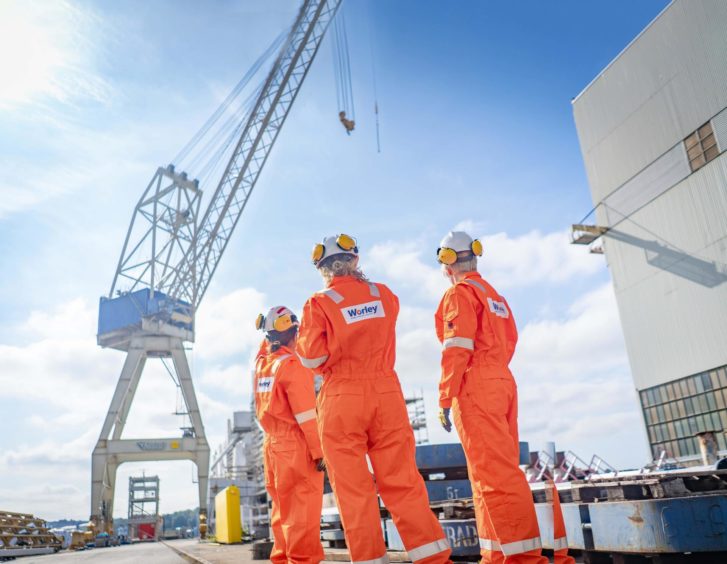
Energy services giant Worley has warned of ‘ongoing delays’ to project sanctions ahead.
The company has released its full year results for 2021, with pre-tax profits of £77.7m for the 12 months to June 30, down 45% from 2020’s figure of £141.1m.
Meanwhile revenues also dropped by 27% from £6.8bn to £5billion.
However the company has had its first boost to headcount since the pandemic began, increasing staff to 48,000 from 47,600 in February.
Worley, thought to employ around 3,000 people as part of its UK workforce, had cut around 11,400 workers globally as a consequence of the pandemic.
The engineering firm hailed key strategic projects during that time, including work with CNOOC on the Buzzard Phase 2 development in the UK North Sea.
However CEO Chris Ashton said he anticipates that “customers will retain a targeted approach to capital expenditure over FY22 which may result in ongoing delays in project sanctioning”, adding that there is “ambiguity” over global economic circumstances around Covid-19.
He said: “FY2021 has been a year of dynamic global change. Our business has felt the impact of the global economic circumstances, including Covid-19, as global activity slowed and project sanctioning was deferred.
“Through this year, we’ve acted with agility to accelerate our strategic transformation and position our business for future success. These efforts contributed to an improved result in the second half in line with our expectations.”
Worley’s backlog has increased over the last six months from £7.1bn to £7.5bn but many of its strategic awards are expected to progress “beyond the early phases late in the second half of FY22”.
Mr Ashton said the company is making strong progress in the energy transition, with sustainability work now accounting for 32% of aggregated revenues and at more favourable margins then other services.
He added: We’re seeing an acceleration in energy transition and circular economy project opportunities and are pleased with the significant strategic work we’re winning.
“Our traditional business across the energy, chemicals and resources sectors continues to be a strong foundation from which we will grow as we support our customers as they address the magnitude of the transition to achieve a low carbon future.”

